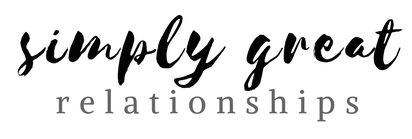We talked about recording this episode. And our immediate response? “Eww!”
No one wants to be in a parent-child relationship with their partner. Surprisingly, many of us are.
Being in a parent-child relationship means there is a hierarchy in place. One partner (the “parent”) holds more influence, decision-making power, and control than the other partner (the “child”). The “child” may have tried to express their opinion in the past, but gave up after seeing how powerful the “parent” was. The “parent” may have experienced the “child” make a lot of mistakes or poor choices, which led them to feel the need to takeover to ensure their lives stay on track.
So, what is the problem?
Healthy couples are in equal partnerships. Each partner has equal influence, decision-making power, and control. No one person feels they are beholden to the other. Over time, this hierarchy will affect all areas of the relationship. (Anyone want to have sex with their “Mom” or “Dad?” Ahem, no…).
In this week’s episode, we’re sharing stories about the types of parent-child relationships we’ve seen, how to identify if your relationship has slipped into this dynamic, and what to do to reset the hierarchy.
Disclaimer:
Silveron Productions LLC and Nassau Wellness Marriage and Family Therapy PLLC do not hold itself out to be your psychologist, psychiatrist, psychotherapist, or social worker. Our content is provided for informational and educational purposes only and is not to be perceived or relied upon as medical or mental health advice, diagnosis or treatment. Do not use our content in lieu of professional advice given by qualified medical and mental health care professionals and do not disregard professional medical or mental health care advice or delay seeking professional advice because of information you have received from us. Always seek the advice of your physician or other qualified mental health provider with any questions you may have regarding a medical condition or mental disorder. If you think you may have a medical or mental health emergency, call your professional caregiver or 911 immediately. We do not recommend or endorse any specific tests, physicians, psychologists, psychiatrists, psychotherapists, social workers, products, procedures, opinions, or other information that may be mentioned in our content. By viewing our content, you acknowledge and agree that the following warnings and disclaimers apply to all of our content and agree to indemnify and hold Nassau Wellness and all content participants for any and all losses, injuries, and damages resulting from any and all claims that may arise from your use or misuse of the content.
By viewing our content, you further acknowledge that you are doing so voluntarily and at your own risk, and that you are solely and personally responsible for your choices, actions, and results, now and in the future. You accept full responsibility for the consequences of your use or non-use of any information provided in our content. Nassau Wellness is not liable for any advice or information provided in our content, all of which is provided on an “as-is” basis. No warranties, either express or implied, are made regarding the information we provide, and Nassau Wellness makes no representations about the accuracy or the suitability of our content. Opinions and other statements expressed by third-parties are theirs alone.


